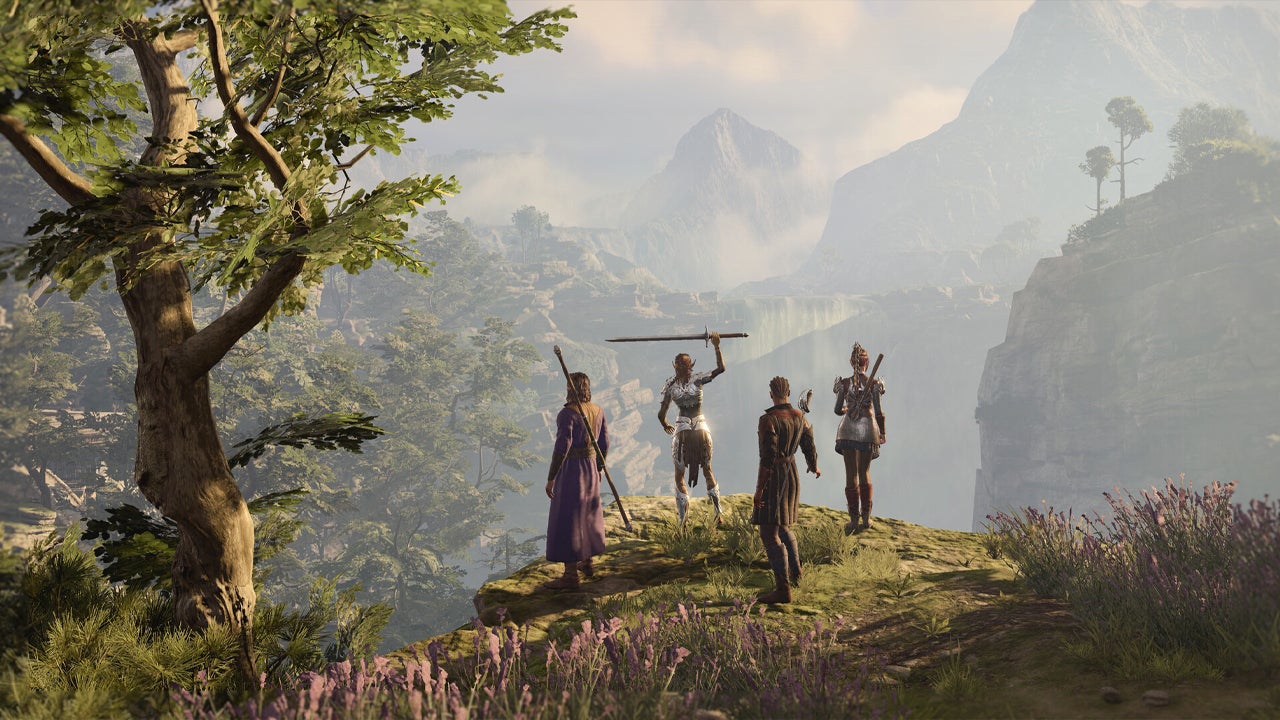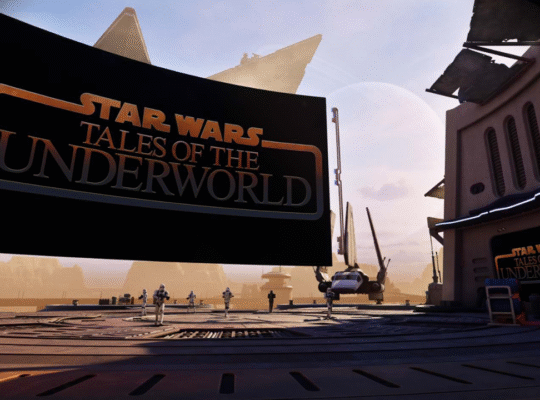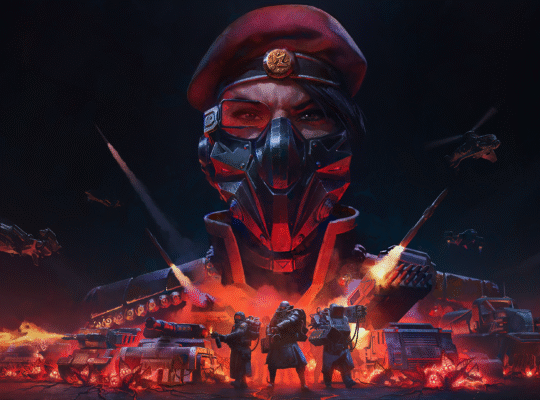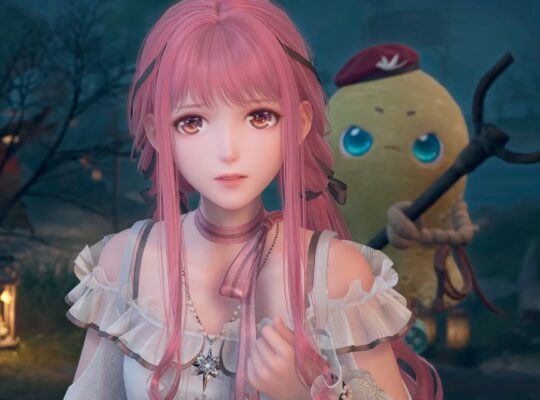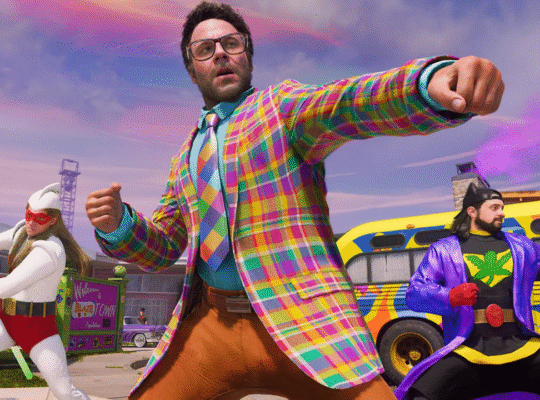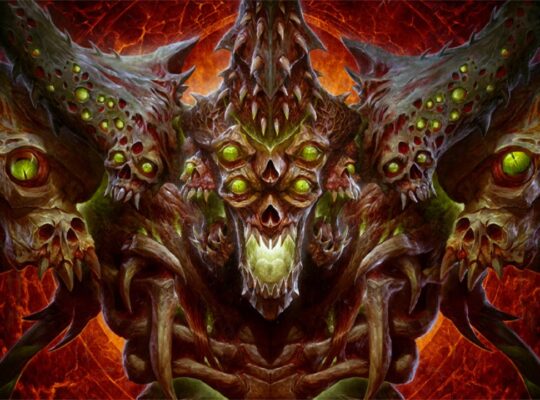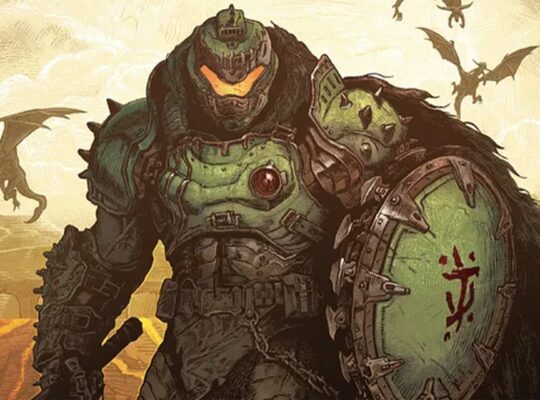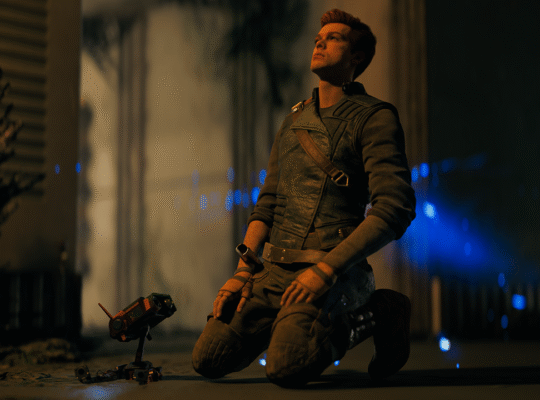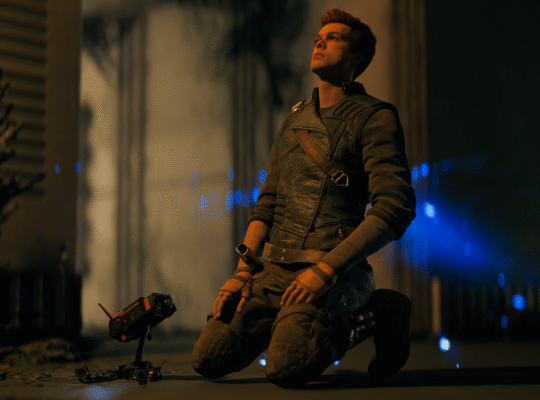In July of 2023, Baldur’s Gate 3 was hardly a blip on my radar. When it was released one month later, it became one of my favorite games of all time.
Now, the game is celebrating its one-year anniversary. Its seventh major patch, which will add official modding support and new endings to the game, is right around the corner, and developer Larian Studios launched a brand new YouTube channel to provide behind-the-scenes looks at the game and its developers. Between its critical acclaim, numerous awards, and financial success, Baldur’s Gate 3 is worth celebrating, but its meteoric rise to success was just as surprising to the developers at Larian as it was to the rest of the gaming community.
“At every single point, I thought it was going to stop,” game director Swen Vincke says of the game’s success. “I remember arguing with our director of publishing, who said, ‘This is going to sell a lot.’ I said, ‘That’s impossible. The number you’re saying is just not possible.'”
The interview with Vincke is done virtually, but while I’m home in my office, Vincke answers my call from the passenger seat of a moving car. He’s the only one who can hear me, but he informs me of potential background noise from the backseat of the car, which is currently filled with several other developers who worked on the game. I don’t know exactly where they’re headed, but to schedule an interview for the travel time from one place to another makes one thing abundantly clear – Vincke is a busy man, but he’s not ready to share the project taking up all of his time.
“That’s impossible. The number you’re saying is just not possible.”
Despite months of patches and media attention on Baldur’s Gate 3, Larian is already hard at work on its next project, and while we don’t know exactly what it is, we know it isn’t Baldur’s Gate 4. In March, Vincke announced the studio’s plans to end its partnership with Wizards of the Coast, meaning Larian won’t be making DLC or a sequel to their critical success. Several months after this announcement, Vincke says the folks at Larian have no regrets about the decision.
“We actually decided this only at Christmas. We were working on stuff, but […] our hearts weren’t as much in it, probably because we spent so much time already in it. So it was time for us to do new things, and ever since, we’ve felt better. We [got] our developer joy back […] and that’s the prime thing, right? If you don’t have that, you can’t make anything good.”
A Series Revivified
It’s only natural that after spending six years working on the game, Larian isn’t as enthusiastic about Baldur’s Gate 3 as it once was. But back in 2017, that exact enthusiasm was what led Vincke to pursue the project to begin with. The original Baldur’s Gate games are hailed as BioWare classics from the late 90s, and after decades without a new entry, Larian saw itself as a developer fit to continue the legacy. Wizards of the Coast (which owns the Baldur’s Gate IP) agreed to a pitch meeting, but the presentation’s date was, ironically, set for the same day as the release date for Larian’s then-upcoming title, Divinity: Original Sin 2. According to Vincke, the time crunch led to a subpar presentation.
“I’m still ashamed for it,” Vincke laughs when recalling the initial pitch meeting. Whatever it was Vincke showed Wizards of the Coast, it was clearly below their standards.
“That was the best that we could do. [Wizards of the Coast] said, ‘This is not very good.’ We said, ‘We know. Give us more time.’ And then they gave us more time.” Thankfully, the following presentation went much better, and the studio was given the green light. So, after shipping the definitive edition of Divinity: Original Sin 2, Larian focused all its efforts on making Baldur’s Gate 3.
The game entered early access in 2020. Just like with D:OS 2, the early access model allowed Larian to refine the gameplay experience with player feedback, but Vincke is unsure whether Larian will follow the same procedure for future games. “I think it has a tremendous amount of benefits,” he says, “but every game has its own structure – its own language – so I think you need to judge that game by game.”
“That was the best that we could do. [Wizards of the Coast] said, ‘This is not very good.'”
In this case, players had plenty of feedback for Baldur’s Gate 3 and Larian had to “course correct on quite a few things.” In addition to a generally buggy launch (a complaint that would be levied at the game even months after its 1.0 release), fundamental pieces of the story and mechanics were completely reworked. Vincke recalls complaints about the past tense framing of the game’s opening sequence, struggles with implementing the Dungeons & Dragons ruleset, and general comments that it was too similar to their previous game. But the early access model ended up working quite well Vincke says. “At some point, we started figuring out how people wanted to play [Baldur’s Gate 3].” For the following three years, Larian would constantly update and expand the content in their early access release, in addition to developing the latter two acts of the game.
These updates often included adjustments to dialogue and story, which meant actors and voice-over artists frequently returned to the recording studio. Vincke and the rest of the writing team “changed the script continuously,” fine-tuning the plot, making everything flow more naturally, and adding more instances where the game could react to player behavior. Vincke’s audience of developers in the backseat of the car laughs as he tells this story. He adds, “Some of the victims of the rewrites are sitting here. The perpetrators, too.”
Roles With Advantages
Of course, no one is more impacted by script rewrites than the actors themselves, but when I spoke to Devora Wilde, the actress who portrays Lae’zel, she remembers being glad for the extra work. “I felt very lucky in the beginning to, as an actor, have a job for such a long period of time,” she says. “I was like, ‘Oh my god, I’m gonna have a job for two years.'” Due to delays in development, those two years would stretch to four, meaning Wilde spent a considerable amount of time in Lae’zel’s virtual shoes – and a considerable amount of time with a recurring gig.
Baldur’s Gate 3 finally launched on August 3, 2023, but Wilde didn’t feel the full impact the game would have for a few weeks. Between her TikTok posts and a video of the cast reading thirsty tweets, there was a considerable amount of online traction, but she didn’t comprehend the physical size of the fanbase until MCM London Comic Con. Jennifer English, who plays Shadowheart in the game, felt the same way.
“I’d gone to London Comic Con when the game was in early access and I remember being really honored that I had 10 people in my queue,” English says. “I think I’d made my rent that weekend. And I was like, ‘Wow, that’s amazing.'” When she came back the following year, her lines had grown to six-hour wait times and the cast needed a security detail to handle the number of people stopping them on the show floor.
Part of this boom in popularity has to do with the actors themselves and their willingness to promote themselves and the game on social media. Popular games are released all the time, but it’s not common for the actors behind video game characters to be thrust into the spotlight. While it wasn’t Larian’s suggestion that the cast begin engaging with memes on social media, Wilde says that Larian’s encouragement of the situation has a lot to do with their ultimate success.
“Larian [was] just gracious enough and fun-loving enough to be like, ‘You know what? We’re just gonna let them run with it.'” Wilde says. “Many other companies don’t allow actors to do that actually, and I think that [Larian] really embrace[s] the spirit of ‘let the actors just kind of get on with it.'”
“I’d gone to London Comic Con when the game was in early access and I remember being really honored that I had 10 people in my queue.”
In addition to the influx of followers, English says the online community’s response to Shadowheart has made her more fond of the role. Despite initially not liking the character, she says, “The stuff that [players] like in Shadowheart is kind of the stuff I like about myself,” and that fans have latched on to parts of the character that she hadn’t even consciously portrayed. Meanwhile, Wilde was surprised Lae’zel was “so polarizing” at first, with many fans being turned away by her stand-offish attitude, though that attitude eventually softened. She says, “I was getting a lot of delayed responses, even now, where people are like, ‘Oh, you know what? On my third playthrough, I gave her a chance and now I love her.”
Scheduling dilemmas mean my interviews with Wilde and English happen at different times, but I chose to speak with the two of them specifically because of their relationships with each other and the online community. Alongside Aliona Baranova, one of Baldur’s Gate 3’s motion capture directors and English’s girlfriend, the actors have cultivated a following that has become separate from the game altogether. This includes a line of merch, with t-shirts referencing Wilde’s love of ranch dressing and inside jokes suggesting the three of them are “God’s Favorite Throuple.”
The latter shirt references a meme of Shadowheart calling herself “God’s favorite princess,” which English recreated per her girlfriend’s suggestion. In fact, English credits her “chronically online girlfriend” Baranova for her social media successes, as English says it’s “never been something I’ve really partaken in.” Right on queue, Baranova peeks her head into the frame – she had been providing commentary from the other side of the Zoom camera the whole time – to say, “I just wanted to add that your Instagram was private. Do you remember?”
Between her personal life, her professional life, and her self-image, Baldur’s Gate 3 has had a profound impact on English. After Baranova leaves to grab dinner, English reflects on the anniversary and says, “It does not feel like a year. And yet, life has completely changed.”
The Next Campaign
English isn’t alone in that feeling; Baldur’s Gate 3 has had a tremendous effect on everyone at Larian. In the months following its release, it won Game of the Year at the Game Awards, the Golden Joystick Awards, the D.I.C.E. Awards, the GDC Awards, and the BAFTAs, not to mention a slew of other awards for narrative and performance, including the second ever Hugo award bestowed upon a video game. It has a staggering 96 on Metacritic and has been hailed as one of the greatest role-playing games of all time. In the face of this monumental impact, Larian’s goals as a studio remain remarkably humble.
“All this success means there are high expectations of what’s next,” art director Joachim Vleminckx writes over email. “We are playing it cool as always and we are not letting the success blind us to the amount of hard work it took to get here.”
“So it was time for us to do new things, and ever since, we’ve felt better.”
“In practice, not much has changed,” Vleminckx’s fellow art director Alena Dubrovina says in that same email. “We are still hard working bees, ready for new adventures. The quality bar was set high by BG3, so we are wrapping our heads around how to raise it even higher.”
The idea of raising a bar past Baldur’s Gate 3 sounds absurd, but Vincke has nitpicks with the game, even now – he wishes the encounter at the entrance to the grove in act one wasn’t so much of a bottleneck, for example. “We could have continued for years tweaking it,” he says. While their future game is sure to present plenty of unseen challenges, the nitpicks and unforeseen hurdles in the past projects will allow Larian to evolve for future ones.
“BG3 was a game that was at a scale that was new to us, […] so we learned a lot about dealing with scale,” he says. “We learned a lot from what we didn’t have, and we’re trying to have that now so we [do] not make the same mistakes.”
“We’re in the luxurious position now that we can pick our own destiny and our own path, which is really cool,” Vincke says later in our conversation. “So I hope that we can sustain that. [I have] two main goals for the studio: being able to make things that we like to make and making sure that it’s sustainable so we can continue doing so.”
This philosophy is directly opposed to much of what we see in the current gaming landscape. Between acquisitions, layoffs, crunching, and executives chasing infinite, exponential growth, it’s a breath of fresh air to hear about a developer settling for a stable working environment. Baldur’s Gate 3 is one of my favorite games of all time, in large part because of the personal, hardcrafted nature evident in its design. One year after the game’s launch, it’s nice to see that the people responsible for that product are excited about what’s to come and satisfied with the work they’ve done.
Charles Harte (@chuckduck365) is a writer, video editor, and podcaster based in Ohio. He can usually be found playing Dungeons & Dragons or petting his cats.


